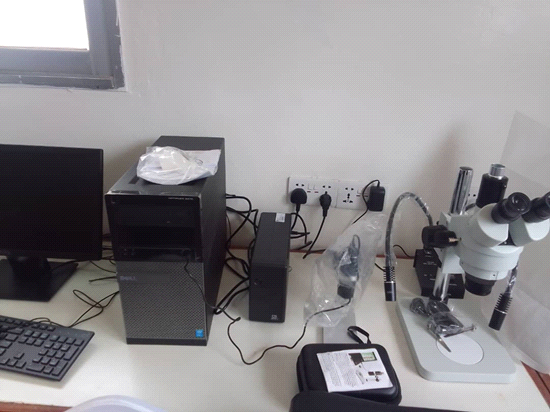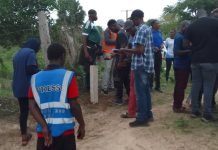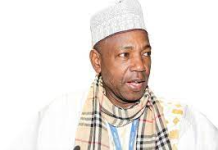By Nelson Manneh
The Drug Law Enforcement Agency-The Gambia (DLEA-G), on Wednesday, June 14 inaugurated a new scientific lab for drugs analysis.
This is the first scientific lab established in the Gambia for the testing of drugs seized by officers of the Drug Law Enforcement Agency. The establishment of the lab and its equipment was supported by the United Nations Office on Drugs and Crime (UNODC).
Mr Bakary Gassama, DLEAG Director General, said the Anti-Narcotic Agency has long yearned for a scientific lab, as it constitutes a critical component of their daily work.
“It is a legal requirement for all drugs seized to be scientifically proven before it is accepted in a trial. None of our cases will succeed in court without presenting the laboratory analysis report confirming the substance seized as drugs,” he added.
He said the lab equipment are a major boost to their investigation and prosecution of drug cases.
According to DG Gassama, the chemicals and other materials provided are of high value, as it helps the agency to unleash a huge financial burden, noting that it will help ensure an effective and efficient analytical regime that meets internationally recommended standards and best practices.
“The Personal Protective Equipment (PPE), powder/dust containment cabinet, waste collection bins and other safety items will help protect staff from exposure to injury and other health hazards. Other items like the tampered evidence bags, digital cameras and labelling machines are pivotal to maintaining a standard chain of custody of evidence and preserve their integrity. The microscopic analytical equipment will certainly be useful in the analysis of cannabis, which accounts for the highest percentage of drug seizures yearly,” he said.
He said the lab equipment will position DLEA-G better in scientific analysis and consolidate the reforms being undertaken since 2016.
“A key milestone of our reform is the creation of the Directorate of Forensic Investigation to deliver a highly capable scientific evidence-based investigations standard,” he added.
He said mechanisms have also been put in place to expedite drug analysis, as the turnaround time for samples is reduced to 5-6 days from the 3-4 weeks period that used to be obtained.
Gassama said the recruitment of qualified staff capable of conducting analysis of drug samples has saved them from the high cost of paying consultants and the delay associated with this practice.
The DLEA-G head further explained that the internalised analytical competence meets the requirement of the law as well as facilitates expeditious processing of case files.
Interior Minister, Seyaka Sonko, said DLEAG and partners have demonstrated consistency and resilience in the fight against drug trafficking through responsible engagement geared towards offering tangible solutions for the world drug problem.
He said his Ministry has always called for DLEA-G’s fruitful partnership with UNODC.
“This partnership has tremendously improved the capacity and capability of DLEAG through training and equipment support,” Sonko added.
According to Minister Sonko, drug traffickers are highly sophisticated in their operation, which requires the drug agency to use modern technology to combat them. Therefore, he said it is his view that empowering DLEAG with this lab equipment will help in enhancing its scientific evidence gathering capabilities.
“Drug trafficking presents a serious threat to the democracy, development, peace and stability of states. For this reason, my Ministry places a high premium on the fight against organized crime, particularly drug trafficking with a view to achieving a progressive social and economic well-being of our country,” he said.
He said since 2017, the government of the Gambia pursues a comprehensive security sector reform agenda, with the primary objective of reorganising and restructuring the sector to deliver a smart and efficient security service capable of guaranteeing the safety and security of the citizens while upholding the respect for human rights and democratic principles.
“We must acknowledge that this is a bold and highly resource demanding venture. Our reform will have little impact if law enforcement institutions are not well equipped to perform their functions as a modern entity,” he noted.





















